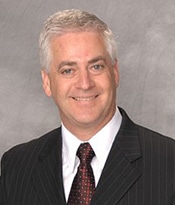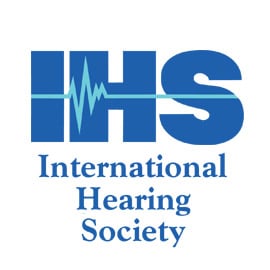Editor’s Note: Following the Hearing News Watch story last week, Department of Labor Withdraws Apprenticeship Program for Hearing Instrument Specialists, we received a number of comments. We wanted to share one of those comments today with our readers.
The content of today’s post was received from Richard Giles, President-Elect of the International Hearing Society (IHS). According to Mr. Giles, the content of this post is an edited version of comments recently published on the IHS “Hearing Hub” forum by Alissa Parady, IHS Director of Governmental Affairs.

Richard Giles, ACA
Below find the whole story, it is truly unfortunate that mis-information is often reported as fact.
It has come to our attention that inaccurate information is being spread in the audiology community regarding the U.S. Department of Labor Hearing Aid Specialist Apprenticeship Program guidelines. IHS values transparency; therefore, we want to address the misstatements and share with you some facts.
1) The DOL guidelines were not “rescinded” as the audiology organizations have stated. The DOL has temporarily suspended the program. This action comes partially as a result of objections made by the audiology groups that they should have been consulted in the DOL’s approval process and their unfounded belief that the program impacts hearing aid specialists’ scope of practice, which is in no way true. IHS could not idly stand by and have organized audiology dictate our hearing aid specialist training program, and therefore we agreed with the Department of Labor to suspend and resubmit the program. In doing so, the DOL can revise the review process as needed to move the program towards active status again.
2) The audiology organizations pushed back on the guidelines with comments IHS couldn’t accept. For example, they took issue with hearing aid specialists learning how to “interpret” audiometric tests, hearing aid evaluations, and validation testing; hearing aid specialists learning about aural rehabilitation and tympanometry; and even learning tasks such as tracking changes in a patient’s hearing and health. They took issue with the use of books that have been the core of IHS’ Distance Learning program for years. And they took issue with portions of a non-binding “Description” of the profession, which has no bearing on the lawful practice of hearing aid specialists.
IHS supports hearing aid specialists having well-rounded education and training experiences that best prepare them for independent practice. Nothing contained within the guidelines breaks new ground; it simply establishes the gold-standard learning for apprentices based on existing standards. More importantly, the guidance is just that. State apprenticeship agencies are expected to work with licensing boards to ensure the program is consistent with state licensing laws and standards.
Please note that the DOL program being suspended is not new news. The DOL notice was released in July – four months ago. Rather it appears the audiology organizations may be trying to drum up controversial news to divert attention away from IHS’ recent win on Fit to Serve.
What it most certainly is, however, is an attempt to diminish the role of the hearing aid specialist in the provision of hearing healthcare, and we will not stand by and let that happen.








First, thank you Brian for sharing this letter. It likely would otherwise have never been seen by those outside the confines of IHS and its members.
It is quite disconcerting that Mr. Giles and Ms. Parady would begin this discourse with the statement that audiology organizations have made “unfounded” accusations that the DoL’s apprenticeship program expands the scope of practice of hearing instrument dispensers – only to make a list of procedures in the following paragraph which are clearly outside the scope of practice of dispensers in every state I have seen. Diagnostic interpretation, verification of fit, evaluative measurement, and advanced diagnostic assessment such as tympanometry or procedures such as aural rehabilitation are not only outside the scope of practice of dispensers, they are not widely taught to dispensers. Even if these were included in the DoL’s apprenticeship program, there would be very few people in the dispensers community capable of adequately teaching these procedures and methods.
There is currently no formal, widespread training in place for dispensers which leads to a legal credential. Training for dispensers is still largely on-the-job or courses lasting a few days which teach directly to a state exam. As a result, there is very little, if any, critical thinking and – appropriately – no clinical decision-making included in dispenser training. If hearing instrument dispensers wish to learn these procedures and truly provide health care, there are 77 accredited universities accepting applications for audiology students.
I am truly sorry that dispensers do not feel the services they provide are adequate to serve the public, even though I wholeheartedly agree. However, if they want to provide more valuable clinical services and truly treat the people they see, rather than simply amplifying them, the answer is not to write a federal regulation which includes aspects of clinical practice beyond their training and scope of practice. Instead, they should strive to elevate their knowledge and skills by taking advantage of the education which exists and is readily available to them to become a licensed audiologist.
A few years ago, we attempted in my state to work collaboratively with state licensing staff, audiologists, dispensers, industry, and public representatives to provide a pathway for a higher level of education and training. It was soundly rejected by the dispenser community. They made a very clear and specific statement that they did not want more education and they did not want to change their practice, despite the high numbers of failures on our state dispensing exam. If this is a representative attitude of dispensers, and we have every reason to believe it is in our state, then including an expanded range of services in a federal regulation will provide much more harm than good. It may provide a pathway for later justifying and expanded scope of practice, even though we do not have the educational processes in place (again, the DoL can make the rule – but who will provide the education?) to support it. We have seen too many attempts on the part of dispensers to sound like audiologists, look like audiologists (in some cases fraudulently call themselves audiologists), and tell people that they “practice” exactly the same as audiologists. This tells us clearly that there is a perception within the dispenser community itself that they are not comfortable with who they are and possibly that they feel they are not adequately prepared to provide hearing care services to the public. I would agree and I again offer that there is already a path in place to remedy this. I would cordially invite dispensers and IHS to use the mechanisms already in place to elevate their level of education and service to the public instead of fabricating new ones which are nothing but words.
Now, this is a big crock of baloney ! In fact is the reality that dispensers like continuing education like any other professionals. Also another reality is that The diagnostic elements in hearing losses mean virtually “nothing” because there is no real cure for hearing loss yet. The entire issue of diagnosis is academic !
I work at an ENT office and I should know !
They do exactly the same job like we dispensers do ! Period.
As a hearing aid dispenser, I would be very careful about going onto a public forum and stating that you do the same things as an audiologist in an ENT setting. Medicare, many Medicaid, and many private insurers do not legitimately cover the diagnostic testing or treatment provided by a hearing aid dispenser, regardless of the level of physician supervision.
Audiologists, you can visit this gentleman’s website here. Make your own decision about his perspective, especially his RRR therapy program.
Mr. Muhry, if you want to practice audiology, I strongly encourage you to enroll in an BA and/or AuD program. There are now some excellent offerings in California. If you are as knowledgeable as you state, these programs should be easy for you.
I have been with an ENT with two, on-staff audiologist. I have also been to Costco. If anything, the Costco HAD staff do more. It was the first time I and or knew about REM. I am a difficult to fit patient with past Meniere’s and low WRS. They explained I would have marginal success with the one ear and that I might wish to consider a single aid. Never hear that anywhere else. The HAD/HIS did a superb job and annual followup. I am delighted with the much lower cost services that in no way were inferior to the ENT.
My GP also talked me into visiting a multi-shop, local Clinic staffed with AuD. That was the worst of the lot and more a marketing pitch than a medical interview. They did a simple test of shorter duration and then programmed a set of aids and quoted their price without telling me anything beyond how much money they wanted.
I believe the first reply is closer and more accurate than the second. This is a problem industry with or without a degree.
I was disappointed that IHS was given a forum to make completely misleading, false statements about their apprenticeship program and its rescission. There is clear evidence, that exists in public venues, that their statements are false.
First, is the apprenticeship program itself, as submitted to the Department of Labor (DOL). Here is the link. This is a publicly available document and has been sent to the audiology community on several occasions. I strongly encourage readers to review, at a minimum, Appendix A, which is the work plan. I can attest that this is where the heart of audiology’s concerns lied. You will see language that moves beyond mere education and exposure. Note the use of the terms “interpret”, “perform” and “measure”. I am supplying the initial letter that was sent to the DOL to request rescission, found here, which clearly outlines our concerns. If you add this program, Fit to Serve, their Tinnitus Certificate program, and their actions at the state level, one can ascertain the IHS end game.
I also am providing the link to the bulletin, from the DOL itself, which describes the program status here. Next to Subject (upper right corner), you will see the following: “Rescission of the
Hearing Aid Specialist Apprenticeability Determination and Suspension of National Guidelines for Apprenticeship Standards(NGS) for the International Hearing Society”.
It is disappointing that Mr. Giles and Ms. Parady continue to misrepresent their actions and intent in public forums such as this. The facts speak for themselves. As you will note in the initial letter, no one is trying to prevent a dispenser from dispensing amplification and testing for that SOLE purpose as outlined in most existing state dispensing laws). What we do take issue with, time and time again, is attempting to practice audiology without commensurate academic (from an accredited academic institution) and supervised clinical training.
Unlike many of my colleagues, I do not dispute a dispenser’s right to dispense hearing aids and test hearing for the sole purpose of obtaining amplification. That was not challenged with the DOL. What was challenged was yet another attempt by IHS, like the Tinnitus Certificate program, to increase their scope without commensurate (accredited university coursework and degree programs) education, training, and significant hours of supervised experience.
Kim, stop over at hearingaidforums.com and you will see a DIY forum where the wearers are doing their own programming and getting better results than they got with the AuD. What Anjan said seems quite valid.